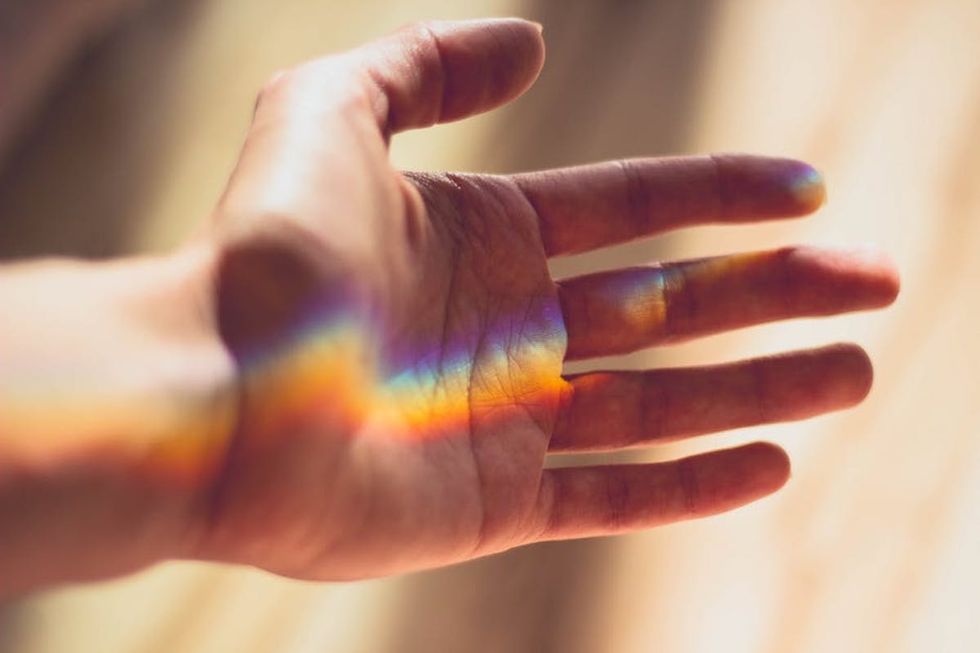My coming out experience with my parents was accidental... well kind of.
As queer folks tend to do, I initially came out to closer friends; fellow students at high school, or simply older friends I knew wouldn’t judge me for it. The response I have received to coming out has mostly been incredibly supportive, and I cannot thank those that made me feel comfortable enough for the support they provided.
See, I’d wanted to come out for a long time, and it was in that moment on the car ride to my grandma’s that I decided to do it. I say accidental, but the underlying urge to come out to my parents was directing the conversation towards relationships, which finally led to the question, ‘is it a girl or a boy you’re talking about?’
I froze, and I said nothing. That was the answer he needed.
It had been a question on my dad’s mind for a while, as it probably is with many traditional, conservative fathers. They expect their son to grow up a certain way, and when it’s not like that it’s a little jarring -- especially, for some, when it comes to the idea of homosexuality.
“Right,” he said before the silence perpetuated itself a little longer.
I started crying; something I used to hate doing in front of people, especially my family. I apologized for not coming out earlier, explaining that I had been afraid. He was OK with it, it seemed, and we didn’t speak about it again until later that evening.
When we got home was when I became really confused. My dad told my mom, and she actually seemed upset. It completely threw me off guard: I expected my typically progressive mom to accept me but she seemed to challenge the notion that I was gay.
Later on, I realized why she responded in such a way: she knew it wouldn’t go down well with my dad, which it didn’t. Dad refused to acknowledge my sexuality, and it irritated him to the point where he didn’t want to hear about it at all. It was like that for a while, and to some degree it still is.
My dad’s gotten better at acknowledging topics of queerness, and the mere mention of The Gays™ doesn’t upset him anymore, but it’s a subject avoided in our home.
Still, I honestly can’t complain, because having a network of friends that support my identity, and a family that loves me regardless is more than I can ask for. I got off really easily, knowing that some homes are so toxic that knowing a child is queer can result in disrespect, abuse and even homelessness.
I am lucky to have never experienced any of the harshnesses some in my community experience; something so horrific that it baffles me that anyone regardless of their background or perspective of the world could ever bestow such treatment on a person, especially their closest family.
But one odd thing I will experience is the repetitive nature of announcing myself, something in this world I’ll have to face for the rest of my life: I’m always going to be coming out. The way many cultures still view queerness results in, at the very least, an understanding of my existence as a stray from normativity.
Telling people I’m gay if the situation arises requires an understanding of the context: I need to consider how people will respond, how identifying myself might affect relationships and even what might happen if I announce it. While my sexuality is a minimal aspect of my existence I still want to be respected for it and not judged solely on that basis, and it's why I’m honest about who I am.
Because, at the end of the day, I’m a queer person: I am different. This doesn’t make me better, or worse, it just provides me with another characteristic of uniqueness; an aspect that every person on this earth possesses in one way or the other. It’s an identity that provides no harm towards anyone, and therefore it along with prejudice towards other sexualities and gender identities shouldn’t be a problem.
But it still is, and it’s something the queer community faces daily: a trans person is murdered, a bisexual teen is thrown out of her home, or a gay person is rejected from a business because of their sexuality.
We have a long way to go, but I can only see positive steps forward: families of different faiths loving their child no matter what, work colleagues fully capable of speaking to their friends about their dating without it being made awkward, and the ability for one’s parents just to say ‘It’s OK, and I still love you.’
Because that’s all we want.






















